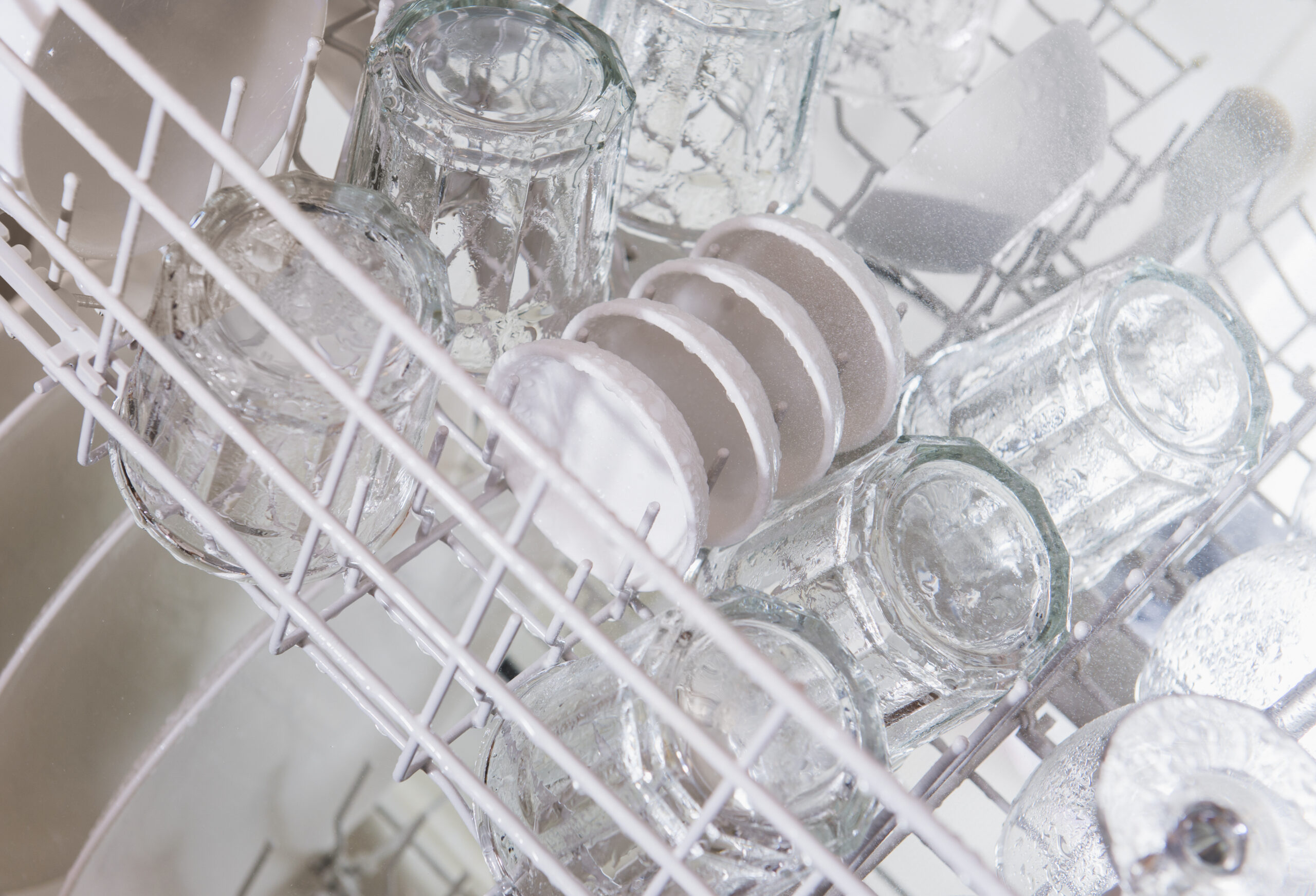There is nothing more annoying than putting a load of dirty dishes on, only to open your dishwasher 80 minutes later to find that not all of the dishes are clean. There are stubborn stains, yes – starch stains such as breakfast, rice and pasta as well as proteins such as meat and eggs are recognised as the hardest stains to remove, according to industry standard testing. So what is the best way of ensuring all of your dishes come out sparkling and clean?

Don’t pre-rinse
As much as this goes against the grain for many of us, there is no need to rinse. In fact, rinsing is just wasting water. “Your dishwasher tablet’s job – like Finish Quantum Ultimate – is to break down food particles and help wash it away. We recommend scraping or wiping all food particles from dirty dishes before loading in the dishwasher,” they advise.
Load correctly
There is a right and wrong way to load a dishwasher. As a general rule, it’s advised to load large soiled dishes on the bottom rack so they get good water flow.
Load stemware and cups on an angle so water can run off the bottoms and dry properly. And always face stains towards the sprayer arms.
Allow a little space between dishes for the water to flow through. And if your dishwasher has an exposed heating element, plastics go in the top rack, but if it has a concealed heating element, plastics can go anywhere in the dishwasher – always follow the item’s washing instructions.
Is the water hot enough?
For really clean dishes, your hot water needs to be at a temperature of 120ºF or 50ºC.
Store your dishwasher detergent correctly
A warm, dry cupboard, out of the reach of children, is the best place to keep your dishwasher tablets and detergents.
A dishwasher cycle uses, on average, seven times less water than washing your dishes by hand. The other great thing about dishwashers is they’ve killed the daily evening fight over who’s washing and who’s drying.




